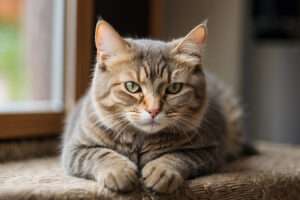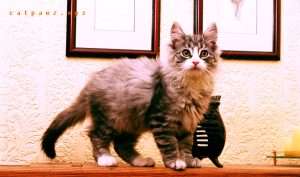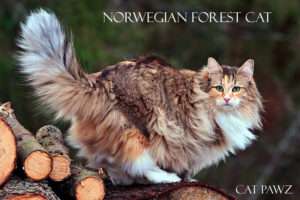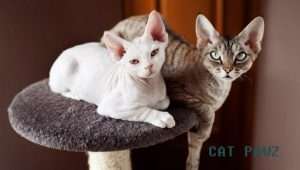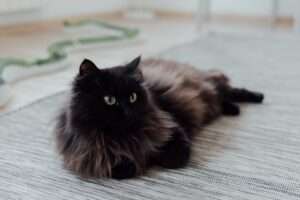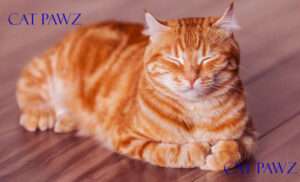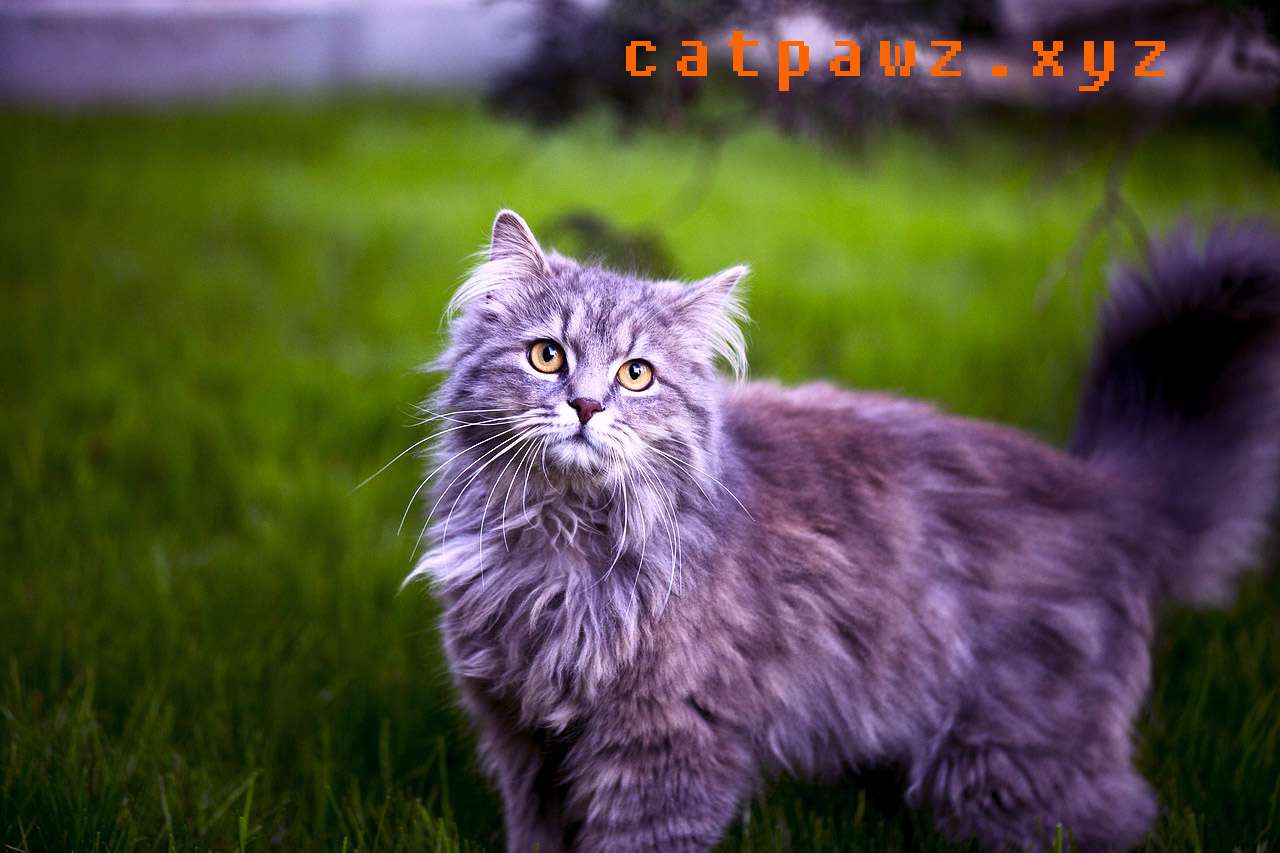
Introduction
What are Maine Coon Kittens?
Maine Coon kittens are a popular breed of domestic cats known for their large size, charming personalities, and striking physical features. These kittens are native to the state of Maine in the United States and are often referred to as “gentle giants” due to their friendly and affectionate nature.
Why are Maine Coon Kittens so popular?
Maine Coon kittens have gained immense popularity among cat lovers for several reasons. Firstly, their majestic appearance with tufted ears, bushy tails, and a wide range of coat colors and patterns makes them truly eye-catching. Additionally, their endearing and sociable behavior makes them great companions for individuals and families alike. Finally, their intelligence and playful nature make them highly engaging and entertaining pets.
Benefits of owning a Maine Coon Kitten
Owning a Maine Coon kitten comes with a myriad of benefits. Firstly, these kittens are known to have a calm temperament and get along well with children and other pets, making them ideal for families. Secondly, they are highly intelligent and can be easily trained, making them a joy to teach and interact with. Lastly, their low-maintenance grooming needs and overall good health make them a practical choice for cat owners.
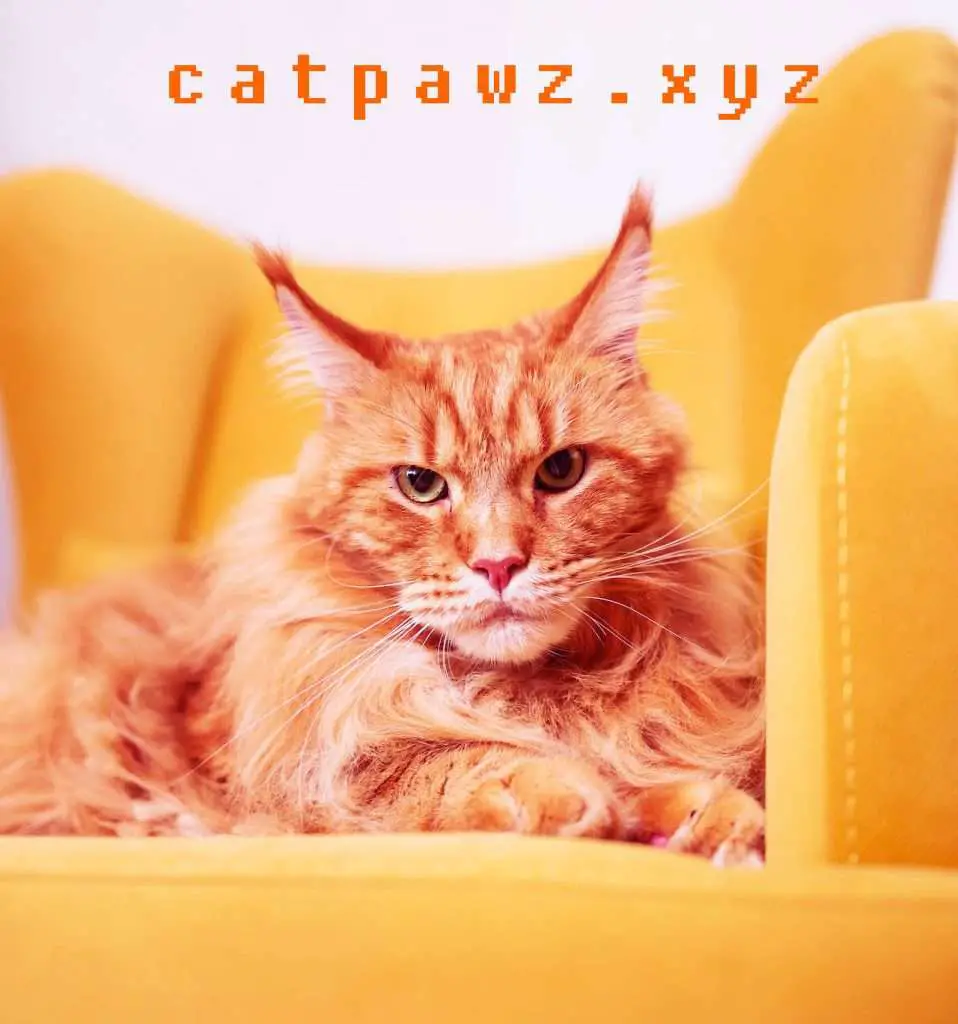
History and Origins
Origins and myths surrounding Maine Coon Kittens
The origin of Maine Coon kittens is an intriguing tale steeped in myths and folklore. One popular myth suggests that these kittens are the result of a crossbreeding between domestic cats and raccoons due to their tufted ears and bushy tails. However, this is scientifically impossible, and the more likely explanation is that Coon kittens are descendants of long-haired cats brought by European settlers to America.
The unique features of Maine Coon Kittens
Maine Coon kittens possess several distinct features that set them apart from other cat breeds. Firstly, their large size is impressive, with males weighing up to 18 pounds or more and females reaching around 12 pounds. Additionally, their tufted ears and a ruff of fur around their necks give them a regal and majestic appearance. Their bushy tails are also a defining characteristic, which they often wrap around themselves to keep warm in colder climates.
Evolution and development of the Maine Coon breed
The Maine Coon breed has evolved over centuries to adapt to the harsh winters of Maine. Their water-resistant, shaggy coats and tufted paws helped them navigate snowy landscapes and stay warm. Native to the rugged forests of Maine, these cats have developed strong hunting abilities, agility, and great survival instincts. With time, they have become beloved pets and have gained recognition for their unique characteristics in cat shows and competitions.
Maine Coon Kitten Characteristics
Size and physical appearance
Distinctive features and body structure
Maine Coon kittens are known for their large and sturdy build. They have a rectangular body shape, with well-developed muscles and strong bone structure. Their broad chests and powerful forelegs contribute to their exceptional agility and jumping abilities. One striking feature of Coon kittens is their large, expressive eyes, which come in various colors such as green, gold, or copper.
Coats, colors, and patterns of Maine Coon Kittens
Maine Coon kittens boast a wide range of coat colors and patterns, adding to their captivating allure. They come in solid colors, such as black, white, red, and cream, as well as a variety of tabby patterns, including classic tabby, mackerel tabby, and ticked tabby. Some Coon kittens also have unique coat patterns, like tortoiseshell and calico, making each individual cat truly one-of-a-kind.
Comparing Maine Coon Kittens to other cat breeds
When comparing Maine Coon kittens to other cat breeds, their size typically sets them apart. While most domestic cat breeds weigh between 7 and 10 pounds, Coon kittens can easily surpass 12 pounds at just one year old. Their sturdy build and strong bone structure make them stand out in a crowd. Additionally, their long and flowing fur gives them a regal and distinctive appearance that distinguishes them from short-haired breeds.
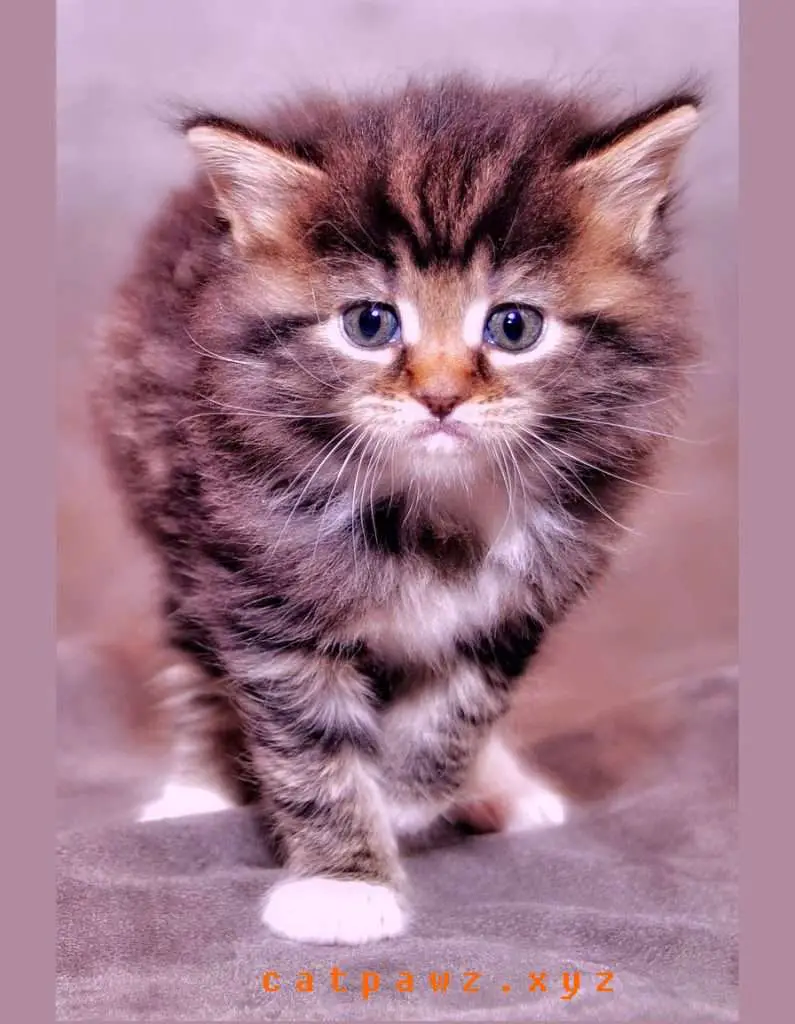
Personality traits and behavior
Friendly and sociable nature of Maine Coon Kittens
Maine Coon kittens are renowned for their friendly and sociable nature. They are highly affectionate and enjoy spending time with their human companions. They often seek out the company of their owners and enjoy being involved in their daily activities. Coon kittens are not typically aloof or shy, making them perfect for individuals seeking a companionable pet.
Playfulness and intelligence
Maine Coon kittens are known for their playful and intelligent nature. They have a playful spirit and can entertain themselves for hours with toys and interactive games. Their high level of intelligence allows them to learn tricks and commands quickly, making training sessions enjoyable and rewarding. Coon kittens have a knack for problem-solving and will often surprise you with their cleverness.
Maine Coon Kittens as family pets
Maine Coon kittens make excellent family pets due to their gentle and patient disposition. They are typically great with children, as they are tolerant and can handle the excitement and energy of younger family members. However, it’s important to supervise interactions between Coon kittens and young children to ensure both parties are safe and comfortable. Additionally, their affable nature allows them to get along well with other pets, provided proper introductions and socialization take place.
Health and grooming
Common health issues and preventive care
Maine Coon kittens are generally healthy cats, but they may be prone to certain health issues. Some common health concerns among this breed include hypertrophic cardiomyopathy (HCM), hip dysplasia, and polycystic kidney disease (PKD). Regular veterinary check-ups, vaccination schedules, and preventive care, such as proper nutrition and exercise, can help keep Coon kittens in good health.
Maintaining a healthy diet and exercise routine
Proper nutrition is vital for the well-being of Maine Coon kittens. A balanced diet that includes high-quality cat food rich in protein, essential fatty acids, and nutrients is crucial to their overall growth and development. Regular exercise is also important to prevent obesity and keep their muscles toned. Interactive toys, climbing trees, and puzzle feeders can help provide mental stimulation and physical activity for Coon kittens.
Tips for grooming Maine Coon Kittens
Maine Coon kittens have semi-long hair that requires regular grooming to keep it in optimal condition. Their dense fur can easily become tangled and matted if left ungroomed. To prevent this, gentle brushing several times a week is necessary to remove loose hair and prevent the formation of mats. Additionally, regular nail trims, ear cleanings, and dental care are essential for maintaining their overall hygiene and well-being.
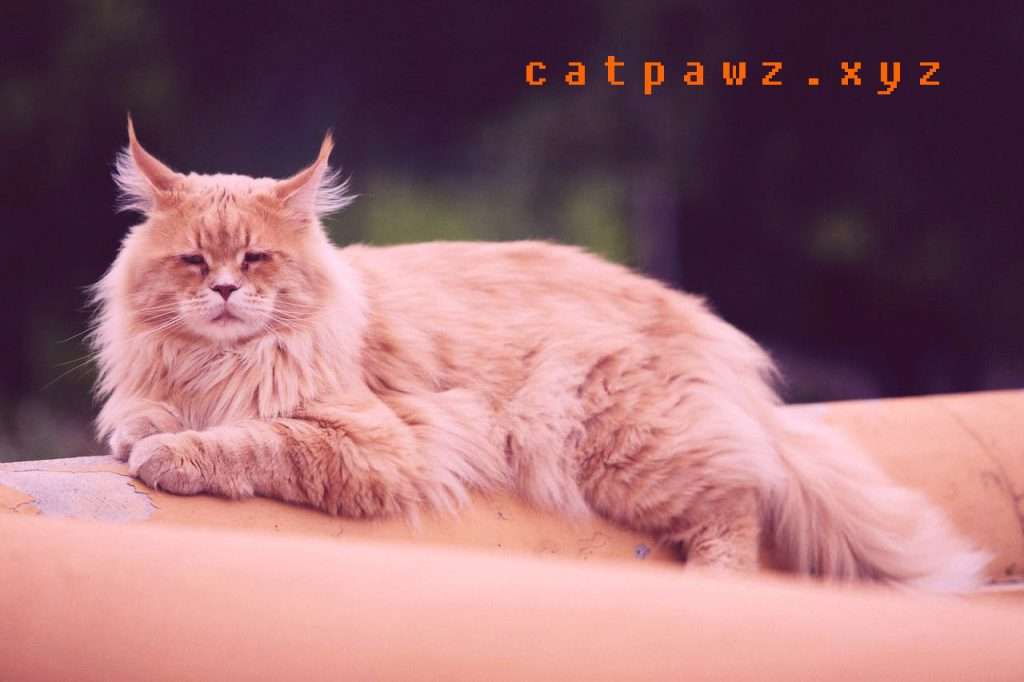
Maine Coon Kitten Care and Training
Essentials for bringing home a Maine Coon Kitten
Preparing your home for a Maine Coon Kitten
Before bringing home a Maine Coon kitten, it’s essential to create a safe and comfortable environment for them. Ensure that your home is kitten-proofed by removing any potential hazards such as toxic plants, fragile items, or small objects that they could swallow. Provide them with cozy bedding, scratching posts, and interactive toys to keep them entertained and stimulated.
Choosing the right supplies and equipment
Investing in the right supplies and equipment is crucial for the well-being of your Maine Coon kitten. Some essential items include a sturdy litter box, high-quality cat litter, food and water bowls, a comfortable pet bed, scratching posts, and a variety of toys to keep them mentally and physically engaged. Additionally, a carrier for vet visits and grooming tools are also important additions to your Coon kitten’s collection.
Introducing your Maine Coon Kitten to your household
Introducing your Maine Coon kitten to your household should be done gradually and with care. Set up a separate area, such as a spare room or bathroom, where your kitten can acclimate to their new surroundings. Slowly introduce them to other areas of the house over time. Allow them to explore at their own pace, making sure they have a safe space to retreat to if they feel overwhelmed. Provide plenty of love, attention, and positive reinforcement to help them adjust and feel secure.
Feeding and nutrition guidelines
Recommended diet for Maine Coon Kittens
Maine Coon kittens have specific dietary requirements that should be met to support their growth and overall health. A high-quality, age-appropriate kitten food that provides a balance of proteins, carbohydrates, and essential vitamins and minerals is recommended. Consult your veterinarian for specific feeding guidelines based on your kitten’s age, weight, and activity level.
Understanding portion sizes and feeding schedules
Maintaining proper portion sizes and feeding schedules is crucial to prevent overfeeding or underfeeding your Coon kitten. Kittens generally need to be fed multiple small meals throughout the day to keep their energy levels stable and support their growth. The exact portion sizes and feeding frequencies may vary based on age, weight, and overall health, so it is essential to consult your veterinarian for personalized feeding advice.
Addressing dietary preferences and food allergies
Maine Coon kittens, like all cats, have unique dietary preferences and can be prone to developing food allergies or sensitivities. It’s important to observe your kitten’s eating habits and monitor for any signs of digestive upset, itching, or skin irritation. If your kitten displays symptoms of food allergies, consult your veterinarian to identify the potential allergens and determine an appropriate diet to suit their needs.
Training and socialization tips
Litter box training and handling challenges
Litter box training is an essential aspect of raising a Maine Coon kitten. Start by providing a clean litter box filled with a cat litter of your kitten’s preference. Show them the litter box location and gently place them inside after meals or naps. Reward them with praise or treats each time they use the litter box correctly. If your Coon kitten faces challenges with litter box training, consult your veterinarian to rule out any underlying medical issues or behavioral concerns.
Teaching commands and positive reinforcement
Maine Coon kittens are intelligent and respond well to positive reinforcement training methods. Use treats, praise, and clicker training techniques to teach them basic commands such as “sit,” “come,” or “stay.” Keep training sessions short and engaging, focusing on positive experiences. Consistency and patience are key when training your Coon kitten, as they will pick up commands and good behavior through repetition and reinforcement.
Encouraging healthy interactions with family and other pets
Socializing Maine Coon kittens from an early age is crucial for their well-rounded development. Expose them to various people – adults, children, and other pets – to help them become familiar with different environments and experiences. Allow supervised interactions with family members and other pets, ensuring that everyone is calm and positive during these introductions. This will help your Coon kitten develop into a sociable and well-adjusted adult cat.
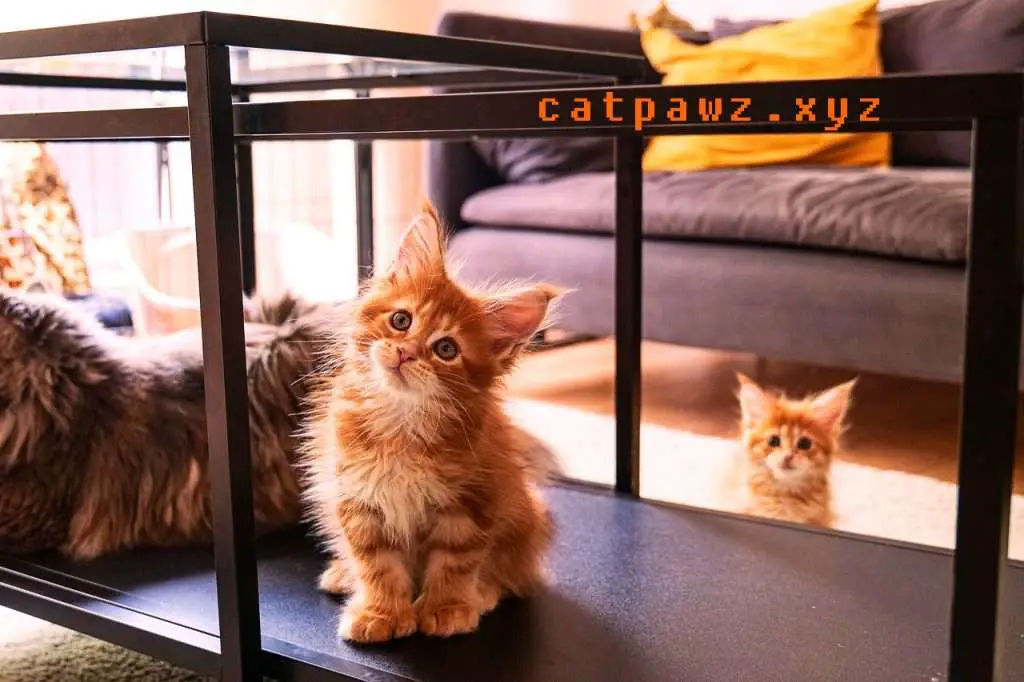
Breeding and Caring for Maine Coon Kittens
Breeding considerations and responsible practices
Understanding the breeding process
Breeding Maine Coon kittens should only be done by experienced and responsible breeders who prioritize the health and well-being of the cats. The breeding process involves selecting suitable mates based on their genetic backgrounds to minimize the risk of passing on hereditary health issues. It is crucial to consult with reputable breeders and veterinarians to ensure responsible breeding practices.
Genetic health testing and selecting suitable mates
To ensure the health and genetic wellbeing of Maine Coon kittens, responsible breeders prioritize genetic health testing. Testing for conditions such as hypertrophic cardiomyopathy (HCM), hip dysplasia, and polycystic kidney disease (PKD) helps identify potential health risks in breeding cats. Selecting suitable mates based on their genetic test results minimizes the likelihood of passing on these hereditary conditions to offspring.
Ensuring a safe and comfortable environment for the kittens
Creating a safe and comfortable environment for Maine Coon kittens should be a top priority. Dedicated breeding spaces that provide ample room, ventilation, and cleanliness are essential. Kittens should have access to appropriate nutrition, regular veterinary care, and adequate socialization from birth to ensure their physical and emotional well-being. Responsible breeders go the extra mile to ensure that the kittens are well-prepared for their future homes.
Caring for Maine Coon Kittens from birth to adoption
Nurturing newborn Maine Coon Kittens
Newborn Maine Coon kittens require special care and attention to ensure their healthy development. They should ideally be kept with their mother until they are at least 12 weeks old to learn essential social and behavioral skills. During this time, breeders closely monitor the kittens’ growth, provide proper nutrition, and ensure they receive necessary veterinary care, including vaccinations and deworming.
Monitoring growth and development milestones
From birth to adoption, it is important to closely monitor the growth and development milestones of Maine Coon kittens. Regular weigh-ins, observation of physical and behavioral changes, and veterinary check-ups are necessary to ensure their overall health and well-being. Tracking milestones such as the transition to solid food, teething, and development of play skills helps breeders and future owners ensure that the kittens are on track for a healthy and happy life.
Finding loving homes for Maine Coon Kittens
Once Maine Coon kittens are ready to leave their breeders, finding them loving and suitable homes becomes a priority. Responsible breeders often have an extensive screening process for potential adopters, ensuring that the kittens will be well cared for and have the right environment to thrive. Through careful consideration and matching, breeders strive to find forever homes that will provide the love, care, and attention these remarkable kittens deserve.
Maine Coon Kitten adoption and rescue organizations
Locating reputable breeders and adoption centers
Locating reputable breeders and adoption centers is essential when considering adopting or rescuing a Maine Coon kitten. Reputable breeders will provide documentation of genetic health testing and ensure that their kittens receive proper veterinary care before adoption. Adoption centers often have Coon kittens available for adoption, and they can provide guidance on the adoption process and offer support in finding the perfect companion for your family.
Considerations for adopting or rescuing a Maine Coon Kitten
Adopting or rescuing a Maine Coon kitten comes with its own considerations. Ensure you have the necessary time, resources, and commitment to provide a loving and nurturing home. Understanding the specific needs of Coon kittens and being prepared to meet them is essential.
Support and resources available for owners of adopted Maine Coon Kittens
Owners of adopted Maine Coon kittens have access to numerous support and resources. These can include online communities, veterinarian guidance, and specialized training programs. Taking advantage of these resources can help new owners navigate the unique challenges and joys of owning a Coon kitten.
Summary and FAQs
Recap of key points discussed in the article
- Maine Coon kittens are a specific breed known for their large size and friendly temperament.
- They have a unique history and physical features, evolving into a majestic and visually stunning breed.
- Maine kittens are larger than most domestic cats and possess distinctive coats, colors, and patterns.
- They are friendly, sociable, and playful, making them ideal family pets.
- Maintaining their health and grooming needs, providing suitable training and care is essential.
- Responsible breeding and caring for Coon kittens involves genetic health testing and a safe environment.
- Adoption and rescue organizations play a crucial role in providing loving homes for Coon kittens.
- Frequently asked questions cover topics such as lifespan, suitability for families with children, grooming needs, and compatibility with other pets.
Frequently Asked Questions about Maine Coon Kittens
- How long do Maine Coon Kittens typically live?
- Maine Coon kittens have a life expectancy of approximately 12 to 15 years. However, with proper care and a healthy lifestyle, some Coon cats have been known to live well into their late teens or even twenties.
- Are Maine Coon Kittens suitable for families with children?
- Yes, Maine Coon kittens are known for their friendly and patient nature, making them excellent companions for families with children. They can tolerate playful interactions and form strong bonds with their human siblings.
- Do Maine Coon Kittens require special grooming?
- Yes, Coon kittens have thick, long fur that requires regular grooming. Daily brushing helps prevent matting and keeps their coat shiny and healthy. Additionally, routine nail trims, dental care, and ear cleaning are essential for their overall grooming needs.
- Can Maine Coon Kittens get along with other pets?
- Yes, Coon kittens generally get along well with other pets, including dogs and other cats. They have a sociable nature and are known to adapt to new companions with ease. Proper introductions and gradual socialization are key to ensuring harmonious relationships between pets.
With this ultimate guide to Maine Coon kittens, you are equipped with all the knowledge necessary to welcome one of these wonderful cats into your life. Whether you choose to adopt or work with a reputable breeder, your Coon kitten is sure to bring joy, companionship, and endless entertainment as they grow and thrive in your home.

